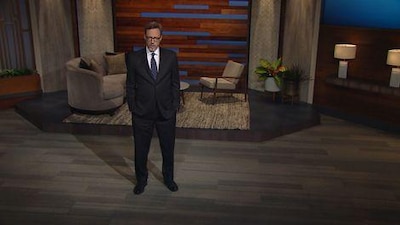After appearing in such introspective and offbeat melodramas as The Conversation (1974) and Night Moves (1975), Gene Hackman was ready for a change of pace and Bite the Bullet with its physically demanding narrative and rugged outdoor setting provided a new challenge for the actor. Hackman later said it was 'the toughest film I ever worked on.' The sixty-eight day location shoot, which moved from Nevada to New Mexico to Colorado, was plagued by every kind of weather from snowstorms to pouring rain and scorching heat. The high attitudes, some above 11,000 feet, also affected some of the cast and crew. Still, Hackman enjoyed himself in his role as Sam Clayton and even had some time off to enjoy his private plane on weekends.
While Bite the Bullet can't really be considered one of the major high points in Gene Hackman's career, despite his solid performance, the film did mark a major turning point in the career of Candice Bergen, who had never taken herself seriously as an actress up to this point - and the critics didn't either. In her autobiography, Knock Wood, the actress recalled her preparation for her role, "I was confident about my riding skills. Not so about my acting skills. Here was a triumph of miscasting by any but athletic standards: I was to play a voluptuous, tough-talking, two-timing prostitute. But it was beginning to dawn on me that I might take some responsibility here - might at least try to remedy my insecurity about the role...On Bite the Bullet there was a moment of truth. I found...some of the responsibility I'd been grouping toward. One morning, heading for location in one of the fleet of station wagons...I fired a small salvo on the dialogue to the other actors in the car...'I can't say this stuff. It's like an anthology of cowboy cliches; Gene Autry had better lines, for God's sake, Roy Rogers...' Suddenly, Gene Hackman, who had been sitting silently beside the driver in the front seat, swiveled sharply and turned his fury on me full force. 'Shut up about the dialogue!...I don't need to hear any more of your wisecracks about how it can't be done. My job is to do it.'
'Gene was right, of course, in all he said...He didn't give a damn about what anyone thought of him, never wasted his time buddying up to the crew or getting chummy on the set. He funneled his energy fiercely into his work, and he did make bad material good, mediocre writing great. Made magic...he was the first person to give me a sense of respect for acting...that was the first time I began to see the complexity, the infinite challenge of my profession."
Directed and produced by Richard Brooks, Bite the Bullet certainly stands as one of the more interesting and entertaining westerns from the 1970's. Among its many assets, besides the presence of Hackman and Bergen, are some fine supporting performances, most notably Ben Johnson as the old cowboy who "just wants to amount to something" and former Andy Warhol groupie Sally Kirkland as a vivacious frontier woman. The evocative cinematography is by Harry Stradling, Jr., and the impressive music score, which received an Oscar nomination, is by Alex North (The film also was nominated in the Best Sound category). Filmed on location in the American Southwest, Bite the Bullet features scenes shot at the White Sands National Monument and footage of the Durango-Silverton Narrow Gauge Railroad which was immortalized in an Ansel Adams photograph and later used as a location in such films as Viva Zapata (1952) and Butch Cassidy and the Sundance Kid (1969).
Producer/Director/Screenplay: Richard Brooks
Production Design: Robert F. Boyle
Cinematography: Harry Stradling, Jr.
Costume Design: Rita Riggs
Film Editing: George Grenville
Original Music: Alex North
Principal Cast: Gene Hackman (Sam Clayton), Candice Bergen (Miss Jones), James Coburn (Luke Matthews), Ben Johnson ("Mister"), Ian Bannen (Norfolk), Jan-Michael Vincent (Carbo), Dabney Coleman (Jack Parker), Sally Kirkland (Honey).
C-132m. Letterboxed.
by Michael T. Toole & Jeff Stafford




























